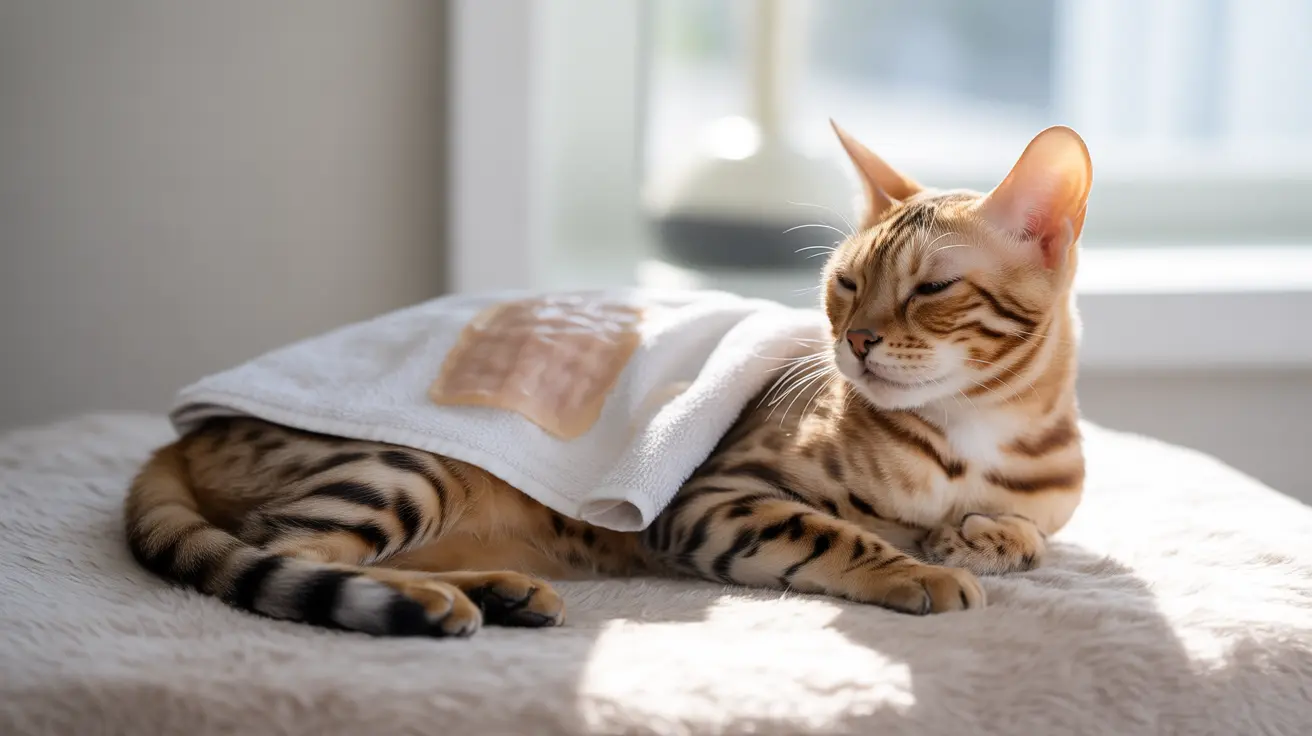Discovering scabs on your cat can be concerning, but there are several safe and effective home remedies that can help soothe your feline friend's skin and promote healing. While veterinary care is essential for serious cases, understanding how to properly treat minor scabs at home can provide immediate relief and support your cat's recovery process.
In this comprehensive guide, we'll explore proven home remedies for cat scabs, when to use them, and crucial safety considerations to keep in mind. We'll also help you recognize when professional veterinary care becomes necessary.
Understanding Cat Scabs and Their Causes
Before applying any home remedies, it's crucial to understand what causes cat scabs. Common triggers include:
- Flea allergies and parasitic infections
- Environmental or food allergies
- Bacterial or fungal skin infections
- Physical trauma from scratching or fighting
- Stress-induced overgrooming
Safe and Effective Home Remedies
Warm Compress Treatment
A warm, damp towel compress can effectively soften scabs and provide immediate comfort. Apply the compress for 5-10 minutes, 2-3 times daily, being careful not to saturate the fur completely.
Oatmeal-Based Solutions
Colloidal oatmeal contains natural anti-inflammatory properties that can significantly reduce itching and irritation. Create an oatmeal bath by:
- Grinding plain oatmeal into a fine powder
- Adding it to warm water
- Applying the mixture to affected areas with a soft cloth
- Gently patting the area dry after treatment
Natural Topical Applications
Several natural ingredients can help soothe and heal scabs:
- Coconut oil: Apply a thin layer for its antimicrobial properties
- Aloe vera gel: Use pure, additive-free gel sparingly
- Calendula solution: Create a mild tea for gentle application
Preventive Care and Management
Preventing scabs is equally important as treating them. Implement these strategies:
- Regular grooming with appropriate tools
- Consistent flea prevention
- High-quality, balanced nutrition
- Stress reduction techniques
- Clean living environment
When to Seek Veterinary Care
While home remedies can be effective for minor cases, certain situations require professional attention:
- Scabs that persist longer than a week
- Signs of infection (redness, swelling, discharge)
- Excessive scratching or discomfort
- Multiple or spreading lesions
- Changes in behavior or appetite
Frequently Asked Questions
What are the safest and most effective home remedies to soothe and heal cat scabs?
The safest home remedies include warm compresses, colloidal oatmeal treatments, and pure aloe vera gel. Always introduce new treatments gradually and watch for any adverse reactions.
How can I use oatmeal or coconut oil to treat my cat's scabs at home?
Create an oatmeal treatment by grinding plain oatmeal into a fine powder and mixing with warm water. For coconut oil, apply a small amount directly to the affected area, being careful not to oversaturate the fur.
When should I avoid home remedies and see a veterinarian for my cat's scabs?
Seek veterinary care if scabs are accompanied by signs of infection, persist longer than a week, or if your cat shows signs of severe discomfort or behavioral changes.
How do warm towel wraps and Epsom salt soaks help with cat scab healing?
Warm towel wraps help soften scabs and increase blood flow to promote healing. Epsom salt soaks can reduce inflammation and provide antiseptic benefits when properly diluted.
What precautions should I take when applying aloe vera or calendula to my cat's scabs?
Use only pure aloe vera gel without additives, and ensure your cat cannot lick the treated area extensively. For calendula, use a diluted solution and monitor for any sensitivity reactions.
Remember, while home remedies can provide relief for minor scabs, they should never replace professional veterinary care when needed. Always monitor your cat's response to any treatment and discontinue use if you notice any adverse reactions.






